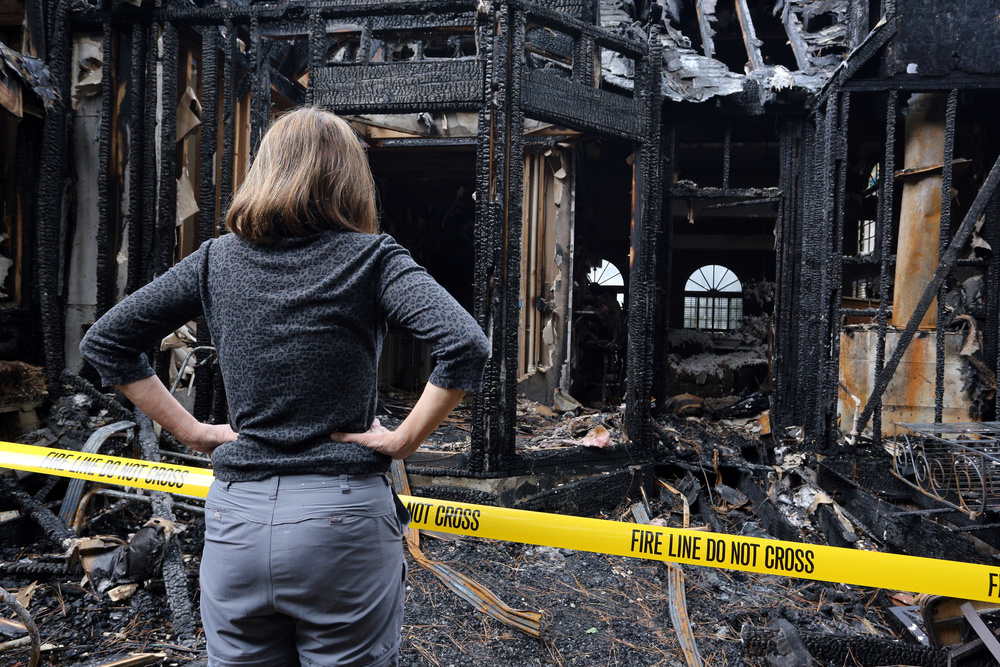House fires form a significant percentage of the fires in the United States. According to the NFPA (National Fire Protection Association), house fires accounted for 25% of reported fires between 2015 and 2019. Various factors contribute to the occurrence of these unfortunate events. These factors include cooking equipment, careless smoking, candles, kids playing with fire, improper wiring, and flammable liquids.
Unfortunately, if your house burns, you are left wondering whether to rebuild or repair it. This decision can be challenging to make, seeing as you’re looking for the most effective solution. If you’re in such a scenario, here are some things that can help you decide whether to repair or rebuild your home after a fire.
Whatever option you settle for, you must go for professional home restoration services. That way, you can be sure to rebuild or repair your home effectively. Professionals like Yeti Restorations can help rescue and remedy your home from whatever damage it has suffered, be it water, fire, or even mold damage. Keep reading to learn more.

Factors To Consider When Deciding Whether To Rebuild Or Repair After A House Fire
Below are some factors that can help you decide whether to repair or rebuild your house after it burns:
- Damage Extent
The extent of the damage is essential when deciding whether to rebuild or repair after a house fire. The fire’s severity and scope will determine the damage’s extent and, in turn, the extent to which the home can be repaired or rebuilt.
For instance, if it was a small contained fire, the damage may be limited to a single room or area, and the rest of the home may be relatively unscathed. In this case, it may be possible to repair the damages and return the house to its original state. On the other hand, the damage may be far more extensive if the fire spread across multiple rooms and floors. In this case, rebuilding parts or all of the home may be necessary to restore it to its original state.
When checking the extent of physical damage, check on structural damage, such as weakened or collapsed walls, and damage to the home’s electrical and plumbing systems. In some cases, it may be possible to repair the damage, but in other cases, it may be necessary to replace parts of the home or move to another house.
- Cost
After you’ve understood how much your house was damaged, evaluate the costs of rebuilding and repairing. The first step in assessing rebuilding and repair costs is to get an estimate from a qualified contractor. The contractor should estimate labor costs, material costs, and any applicable taxes or fees.
It helps when you get estimates from several contractors, after which you can compare them and settle on a more accurate estimate.
The next step is calculating the cost of replacing the items destroyed in the fire. That includes furniture, appliances, clothing, and other things damaged in the fire.
Finally, determine the cost of any additional repairs that may be required to make the home livable again. That includes replacing windows, doors, flooring, walls, and other structures that may have been damaged in the fire.
Once all of these costs have been calculated, you can compare the cost of rebuilding to the cost of repair. In some cases, rebuilding the home from the ground up may be more cost-effective than repairing the damage. In other cases, repair may be the more cost-effective option.
- Time
Another factor that can help you decide whether to repair or rebuild after a house fire is the time it’ll take for either of the options.
Ideally, rebuilding your home will take longer. Therefore, repairs may be the most suitable option if you’re looking for an urgent solution.
Other than that, the time used to repair or rebuild after a house fire is determined by different factors, such as the severity of the damage and the availability of materials and labor.
If the structural damage is severe, you might need many materials to restore your home. That is for both rebuilding and repair. Acquiring these materials and the necessary labor may take time. Therefore, you may have to consider the availability of labor and materials needed for restoration.
Also, the required permits and inspections for rebuilding may take longer. Keep all these in mind when deciding to repair or rebuild your home, depending on what favors your timeline.
- Insurance Coverage
Insurance coverage is a significant factor when deciding whether to rebuild and repair after a house fire. Most homeowners’ policies provide coverage for fire damage and the necessary repairs. The coverage may also include living expenses while the repairs are being made.
When evaluating your insurance coverage, consider the scope and limits of what’s covered. That includes the type and amount of coverage offered. It’s also essential to understand any deductibles or exclusions, such as if coverage is provided for all or part of the rebuilding costs. Another factor to consider when evaluating your insurance coverage is the timeline. Some policies may provide coverage for up to one year of repairs or rebuilding, while others may provide coverage for two years. Understanding the timeline will help determine if the repairs or reconstruction can be completed within the policy’s coverage period.
The above four factors are helpful when deciding whether to repair or rebuild after house fires.

Summing It Up!
House fires are among the things that can leave you confused, as you may be unsure of what to do next. For instance, deciding whether you should repair or rebuild your house after it burns can be challenging. Luckily, some factors can help you make this decision. These factors include the damage extent, cost, time, and insurance coverage. If your house recently burned and you’re unsure what to do, consider the four factors above in deciding whether to repair or rebuild.






